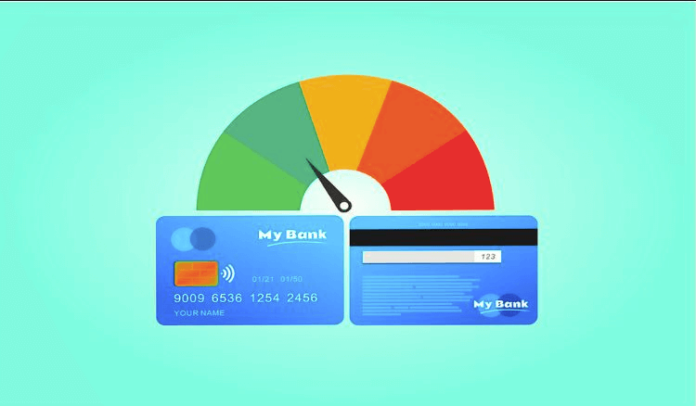In personal finance, “FICO score” and “credit score ” often pop up.” While they might sound synonymous, they have distinct meanings and purposes. In this article, we’ll delve into the differences between these two scores, their significance, and how they impact your financial life.
In financial management, understanding the distinctions between a fico score vs credit score is paramount. Both of these numerical representations provide insights into your creditworthiness, but they originate from different sources and possess varying significance.
Understanding Credit Scores
What is a Credit Score?
Encapsulates your creditworthiness. It’s a numerical snapshot of your financial history and how responsibly you’ve managed credit in the past. This score is determined by credit bureaus using various data points from your credit reports.
Components of a Credit Score
These elements collectively indicate your financial behavior and predict the likelihood of you repaying borrowed money.
Decoding FICO Scores
What is a FICO Score?
It’s one of the most widely used credit scoring models and is often synonymous with “credit score.” FICO scores range from 300 to 850, with higher scores reflecting better creditworthiness.
Factors Influencing FICO Scores
FICO scores are determined based on similar factors to generic credit scores. These include However, the weight assigned to each factor might differ slightly.
Comparing FICO Score vs Credit Score
Relationship Between the Two
While FICO scores fall under the broader umbrella of credit scores, not all credit scores are FICO scores. Scores that many lenders and financial institutions prefer due to their predictive accuracy.
Variances in Calculation
Different credit scoring models may calculate credit scores using slightly varying algorithms. This can result in minor differences between your FICO score and other credit scores, but the general trends and factors remain consistent.
The Importance of FICO Scores
Lenders’ Preferred Choice
When you apply for a loan, mortgage, or credit card, lenders often assess your FICO score to gauge your creditworthiness. A higher FICO score indicates lower risk, making you a more attractive borrower.
Impact on Interest Rates
FICO scores are pivotal in determining the interest rates you’ll be offered on loans. Individuals with higher scores usually receive better a loan.
Significance of Credit Scores
Broader Use Cases
Credit scores extend beyond loans and credit cards. Landlords, insurance companies, and even employers may use credit scores to assess risk and make informed decisions.
Influence on Loan Approvals
Credit scores significantly impact loan approvals. Denials or higher interest rates, while a high score enhances your borrowing potential.
Improving FICO and Credit Scores
Tips for Enhancing Scores
Improving your FICO and credit score involves responsible credit management, timely payments, and maintaining low credit card balances. Regularly reviewing your credit reports for errors is also crucial.
Patience and Consistency
Rome wasn’t built in a day, and neither are credit scores. Consistent positive financial habits, like on-time payments and responsible credit utilization, gradually elevate your scores.
Monitoring Your Scores
Importance of Regular Check-ins
Regularly monitoring your credit scores allows you to promptly identify any discrepancies or signs of identity theft. Early detection of issues can prevent long-lasting damage.
Utilizing Monitoring Services
Numerous credit monitoring services are available that provide regular updates on your credit scores, reports, and any notable changes. These services are valuable tools for safeguarding your financial reputation.
Myths and Misconceptions
Clearing Misunderstandings
Several myths surround credit scores, causing confusion and unnecessary worry. Addressing these misconceptions can lead to a clearer understanding of your financial health.
Addressing Common Beliefs
Common misconceptions, such as closing old accounts improving your score or multiple credit inquiries severely damaging your score, need to be debunked for better financial decision-making.
Making Informed Financial Decisions
Using Scores as Tools
Both FICO and credit scores serve as tools for assessing your financial health. They empower you to make informed decisions about borrowing, spending, and saving.
Balancing Financial Choices
Understanding your scores enables you to balance achieving your financial goals and maintaining a positive credit profile.
Preparing for Major Financial Steps
Buying a Home or Car
When preparing to buy a home or car, your FICO score and credit score are pivotal in securing favorable loan terms.
Renting an Apartment
Landlords often evaluate prospective tenants’ credit scores to assess their reliability. A good credit score can make the apartment rental process smoother.
Navigating Credit Repair
When to Seek Professional Help
If your credit scores are low due to errors, fraud, or past financial missteps, seeking professional credit repair assistance might be beneficial.
DIY Credit Improvement
Many credit repair strategies can be pursued independently. You can gradually raise your scores by addressing past mistakes and establishing better financial habits. Read more…
Conclusion
In the dynamic landscape of personal finance, understanding the nuanced differences between FICO score vs credit score empowers you to navigate your financial journey confidently. Your scores serve as mirrors reflecting your financial past and guides illuminating your financial future.
FAQs
- What is the minimum FICO score needed for a mortgage? Lenders’ requirements vary, but a FICO score of around 620 is often considered the minimum for conventional mortgages.
- Can I improve my credit scores quickly? Improving credit scores is gradual, but responsible financial habits can lead to positive changes over time.
- Why do I have multiple credit scores? Different credit bureaus may use variations of scoring models, resulting in slight score differences.
- How often should I monitor my credit scores? Regular monitoring, such as annually or before major financial decisions, is advisable to catch any discrepancies early.

